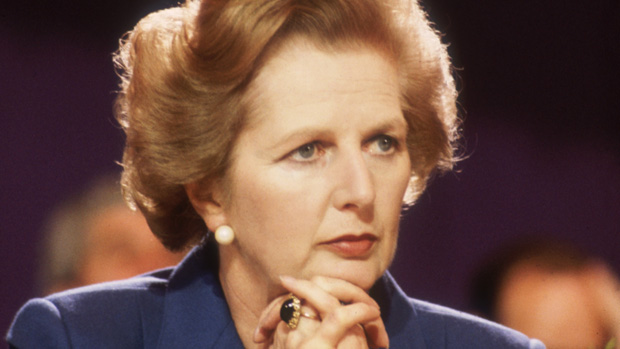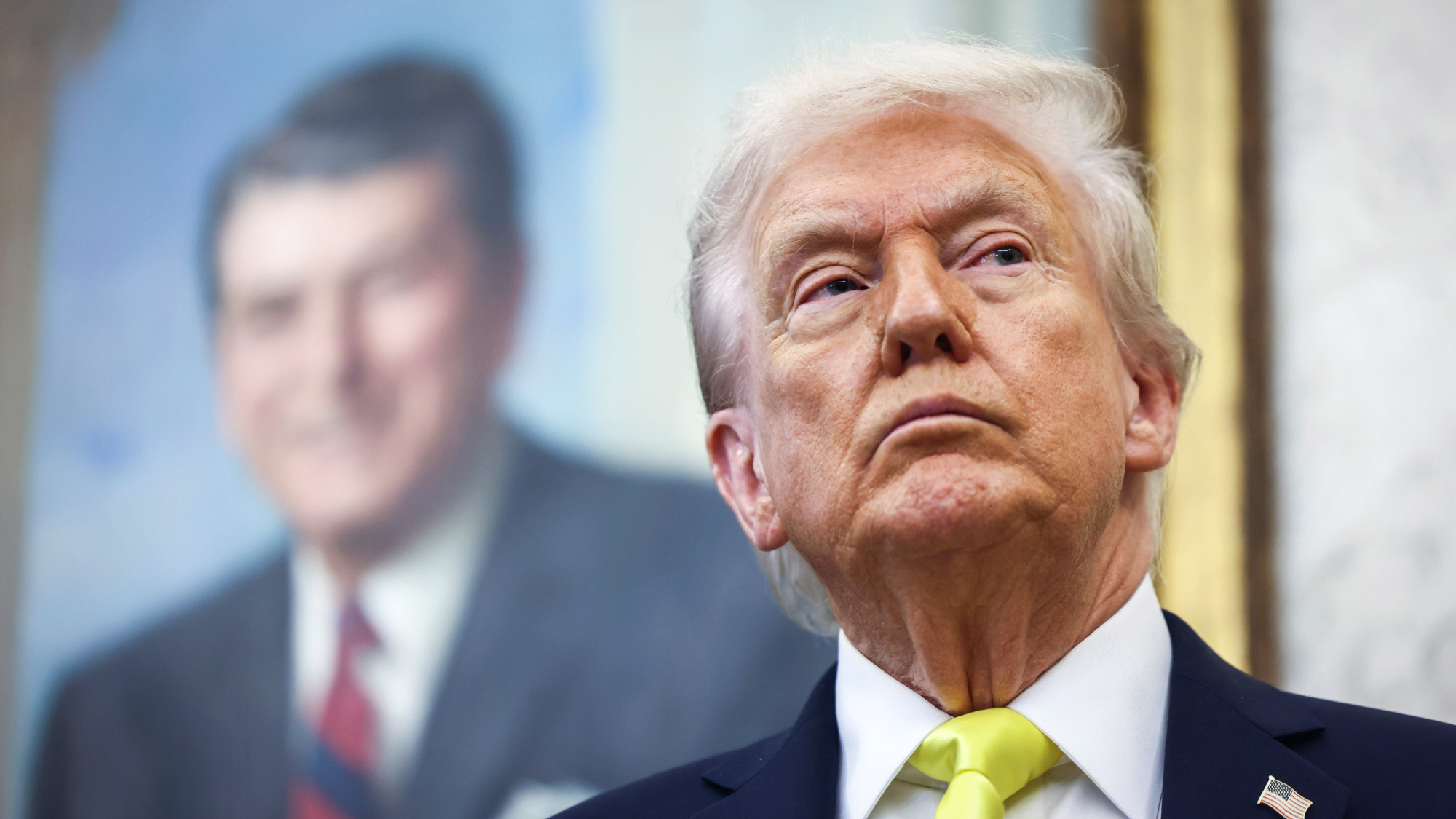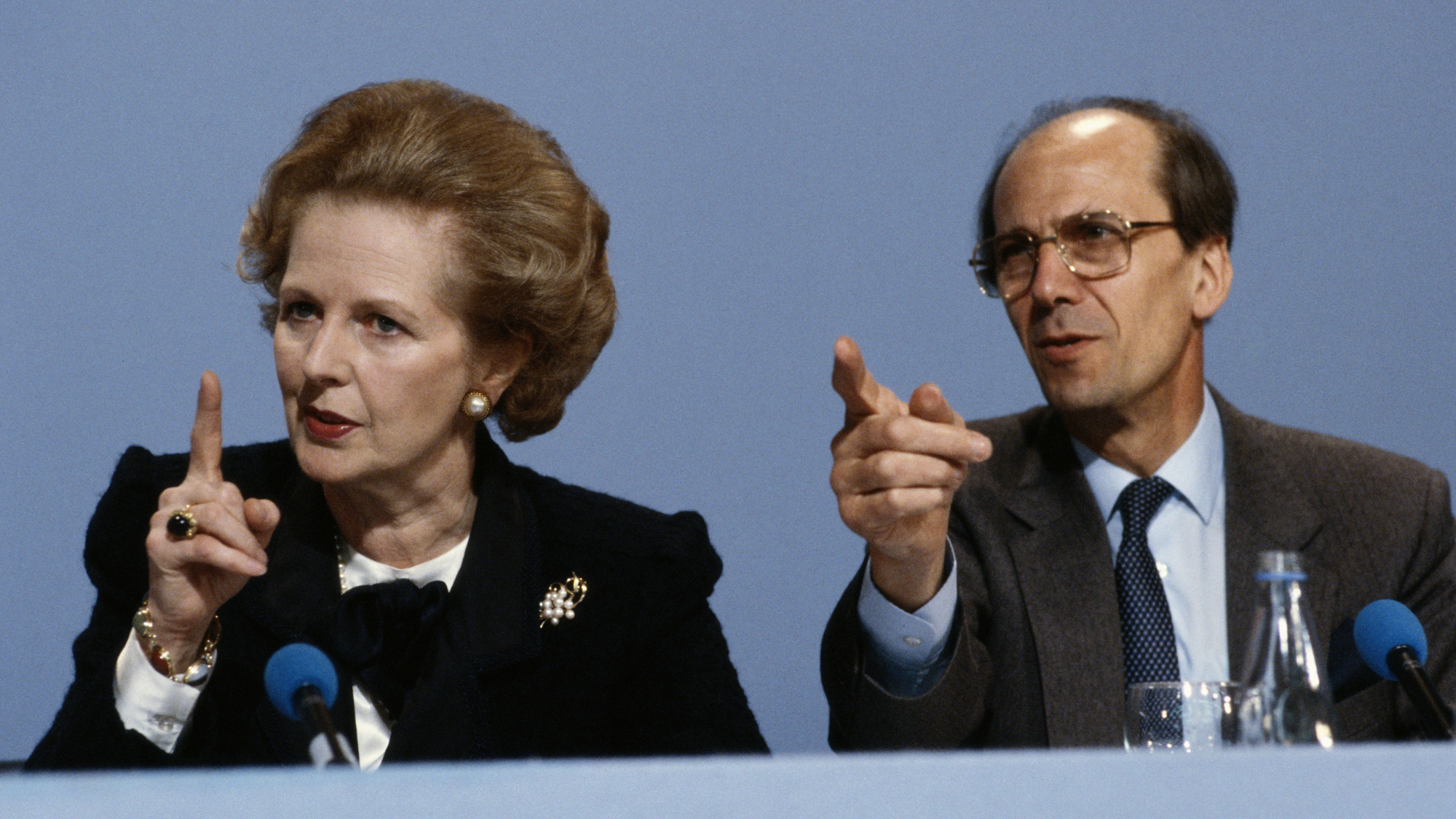Margaret Thatcher and the Falklands: the pros and cons
From the Falklands war to financial deregulation and the poll tax, Thatcher transformed UK politics

A free daily email with the biggest news stories of the day – and the best features from TheWeek.com
You are now subscribed
Your newsletter sign-up was successful
Margaret Thatcher's three terms as Prime Minister brought enormous change to the UK. An objective assessment of her greatest achievements (and failures) isn't easy – opinions are still divided. But there is some consensus on her legacy.
The Falklands War:
The 1982 war was one of the most controversial episodes of the Thatcher era. Her decision to send a task force to the South Atlantic - against the advice of many in her inner circle - earned the enduring gratitude of the islanders, who celebrate Thatcher Day every 10 January. At home, victory was marked with ticker-tape parades in London and Portsmouth. Much more importantly, it led to the landslide election victory of 1983.
The Week
Escape your echo chamber. Get the facts behind the news, plus analysis from multiple perspectives.

Sign up for The Week's Free Newsletters
From our morning news briefing to a weekly Good News Newsletter, get the best of The Week delivered directly to your inbox.
From our morning news briefing to a weekly Good News Newsletter, get the best of The Week delivered directly to your inbox.
The Big Bang:
The Big Bang was a wave of deregulation that blew away the "fusty" world of stock broking and ushered in the UK's globally competitive financial services sector. It was a "hugely significant reform that cemented the City of London's place as Europe's biggest financial centre and led it to challenge New York for global hegemony," says The Times. "The changes allowed international banks like Goldman Sachs to step in and attracted a river of foreign business," says Fox News.
Privatisation:
In her memoirs, Thatcher describes privatisation as "fundamental to improving Britain's economic performance". It also "chimed with her political ideology," says the Daily Telegraph. During her times as PM more than 50 state-run companies were sold or privatised – including dozens from the power and water industries – raising more than £50 billion for the Exchequer.
A free daily email with the biggest news stories of the day – and the best features from TheWeek.com
Education reform:
Many people remember Thatcher as the Education Secretary who "snatched" free milk from 7 to 11 year olds. But her education legacy is more positive than that, says The Independent. Her Education Reform Act was responsible for introducing a national curriculum, setting up the Office for Standards in Education (Ofsted), bringing in regular school inspections and allowing schools to manage their own budgets. "She was responsible for many of the reforms now being built upon by the current Education Secretary, Michael Gove," says The Independent.
Helping end the Cold War:
Thatcher stood shoulder-to-shoulder with President Reagan to install cruise missiles in Europe and resist Soviet expansionism. According to former Soviet leader Mikhail Gorbachev, his relationship with Thatcher "helped bring change and tear down the Iron Curtain". They first met in 1984. "In the end, we were able to achieve mutual understanding, and this contributed to a change in the atmosphere between our country and the West and to the end of the Cold War," he told Reuters yesterday.
The Right-to-Buy scheme:
Thatcher's decision to allow council tenants to buy the properties they lived in at a discount was smart politics because it "converted thousands of Labour voters into Conservatives". More than 1.25 million people signed up to the scheme which added £18 billion to government coffers. On the downside, the scheme depleted the stock of social housing.
Forcing the Labour Party to the right:
When Thatcher was asked to name her greatest achievement she reportedly said: "New Labour". The former PM defeated Labour at three elections and forced the party "to drag itself into the modern world" by supporting "market forces; privatisation; reform of employment laws and lower taxation for individuals and business".
Scepticism towards Europe:
Thatcher initially supported membership of the European Community. Later, however, she "passionately fought and won a number of battles against what she saw as the excessive powers of Brussels," says the BBC. The Independent says she "shocked other European leaders with her handbag-swinging negotiating style". But her hostility towards Europe also sowed the seeds of her destruction. Her opposition to the Exchange Rate Mechanism (a precursor of the single currency) and other, as she saw it, threats to British sovereignty, triggered the resignations of Thatcher stalwarts Chancellor Nigel Lawson and Foreign Secretary Geoffrey Howe, and eventually led to her own downfall.
The poll tax:
The Community Charge (popularly known as the poll tax) was a single flat-rate per-capita tax on every adult, introduced in Scotland in 1989 and England and Wales in 1990. Critics said the shift from a tax based on the value of a house to a tax based on the number of people living in it, discriminated against the less well off. Large numbers of people refused to pay and the tax triggered violent riots, notably the pitched battle between police and rioters in Trafalgar Square on Saturday, 31 March, 1990. The hated tax was abolished in 1993.
-
 American universities are losing ground to their foreign counterparts
American universities are losing ground to their foreign counterpartsThe Explainer While Harvard is still near the top, other colleges have slipped
-
 How to navigate dating apps to find ‘the one’
How to navigate dating apps to find ‘the one’The Week Recommends Put an end to endless swiping and make real romantic connections
-
 Elon Musk’s pivot from Mars to the moon
Elon Musk’s pivot from Mars to the moonIn the Spotlight SpaceX shifts focus with IPO approaching
-
 The high street: Britain’s next political battleground?
The high street: Britain’s next political battleground?In the Spotlight Mass closure of shops and influx of organised crime are fuelling voter anger, and offer an opening for Reform UK
-
 Is a Reform-Tory pact becoming more likely?
Is a Reform-Tory pact becoming more likely?Today’s Big Question Nigel Farage’s party is ahead in the polls but still falls well short of a Commons majority, while Conservatives are still losing MPs to Reform
-
 Trump vows new tariffs on Canada over Reagan ad
Trump vows new tariffs on Canada over Reagan adspeed read The ad that offended the president has Ronald Reagan explaining why import taxes hurt the economy
-
 Taking the low road: why the SNP is still standing strong
Taking the low road: why the SNP is still standing strongTalking Point Party is on track for a fifth consecutive victory in May’s Holyrood election, despite controversies and plummeting support
-
 Norman Tebbit: fearsome politician who served as Thatcher's enforcer
Norman Tebbit: fearsome politician who served as Thatcher's enforcerIn the Spotlight Former Conservative Party chair has died aged 94
-
 What difference will the 'historic' UK-Germany treaty make?
What difference will the 'historic' UK-Germany treaty make?Today's Big Question Europe's two biggest economies sign first treaty since WWII, underscoring 'triangle alliance' with France amid growing Russian threat and US distance
-
 Is the G7 still relevant?
Is the G7 still relevant?Talking Point Donald Trump's early departure cast a shadow over this week's meeting of the world's major democracies
-
 How the Arctic became a geopolitical flashpoint
How the Arctic became a geopolitical flashpointThe Explainer The UK is working with Nato allies in the Arctic Circle to prepare for potential Russian aggression